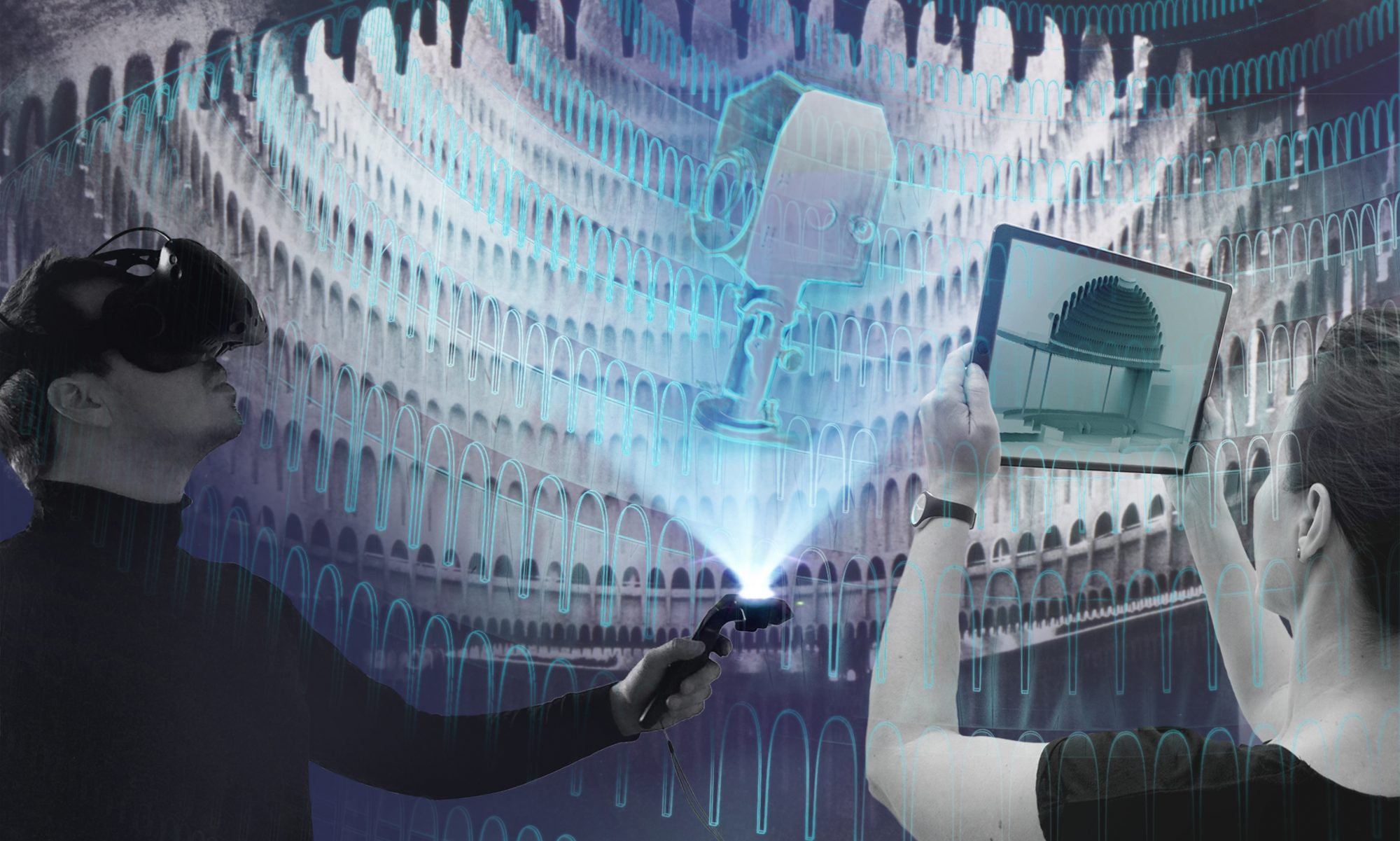Developing a stage design is a process that involves many steps and trades – the creative work of the stage designers in consultation with the director as much as coordination with technical management, production in the workshops and realization on stage.
An essential intermediate step in this process is the construction trial. On this day, the stage design is set up on the stage using simple means. Proportions and lines of sight can be checked and proportions adjusted if necessary. In many cases the time for such construction rehearsals is limited and the means for prototypical presentation of the set design are limited. Accordingly, the use of AR and VR solutions as a planning and construction aid for stage productions is a good solution for this process.

For this reason, a digital.DTHG workshop with cooperation partners from theatres, technical directors, designers and freelance stage designers took place on 09.03.2020 in the Konzerthaus Berlin.
These questions were at the center of discussion:
- What is the status quo for virtual work in the theatre and event sector?
- How can communication processes with virtual media be designed effectively regardless of time and place?
- How can communication structures be simplified with virtual media?
- What does a suitable workflow look like?

It turned out that an AR application could be used to test dimensions and proportions of the model on stage in the original scale even in early stages. In addition, an AR solution as an interface tool could facilitate communication between stage designers and directors, both in daily collaboration and across geographical distances. AR applications could be used where construction rehearsals are carried out outside the regular theatre operations, such as at alternative venues. The medium can also be helpful in adapting a stage set from one stage to another.
In the event sector, AR solutions can be used as a visualization tool during site inspections and first-time customer contact in the halls on site to enhance the spatial imagination. When halls are in a non-empty condition or in conversion situations, demonstrations of planned stage variations can be presented more easily and quickly. Such tools are also suitable as means for protocols of meetings.

This workshop is the basis for the development of further ideas and concepts. Further workshops will follow. At the BTT in October 2020 intermediate results of the “Virtual Construction Test” will be presented.
Partners:
Thomas Herzberg / Estrel Berlin, technical manager event technology
Stephan Plage / Estrel Berlin, production manager
Jan Musigk / AVE Verhengsten GmbH & Co Estrel Berlin
Matt Finke / LoopLight (Friedrichstadt-Palast Berlin)
Peter Laduch / Konzerthaus Berlin, technical manager
Annette Thoma / Konzerthaus Berlin, virtual concert hall
Lutz Hofmann / theater der jungen generation Dresden, technical manager
Robert Rott / theater der jungen generation Dresden, design/operational safety
Hannes Kapsch / theater der jungen generation Dresden, dramaturge for digital media
Christian A. Buschhoff / CAB / Luisenburg Wunsiedel
Fabian Schröter / Luisenburg Wunsiedel, technical manager
Ollie Olma / mo2 design (light Wunsiedel)
Björn Hamann / mo2 design (light Wunsiedel)
Sabine Lindner / freelance stage designer
Oliver Burkhardt / set designer, production manager Deutsche Oper Berlin
Claudia Rohner / stage designer
Vincent Kaufmann / student Beuth-Hochschule Berlin Theater- und Veranstaltungstechnik
Sandra Niederer / studentin Beuth-Hochschule Berlin Theater- und Veranstaltungstechnik


